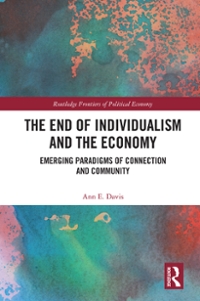Question
The class will focus on the expectations-augmented Phillips curve where inflation is usually about what gets built into the system (E), but is a bit
The class will focus on the expectations-augmented Phillips curve where inflation is usually about what gets built into the system (E), but is a bit lower if unemployment is above the NAIRU, and a bit higher if we had an inflationary supply shock (): Inflation = expected inflation - (unemployment - NAIRU) + inflationary supply shocks Or: = E - (u - NAIRU) + 1. The parameter is the slope of the Phillips curve; that is, the responsiveness of inflation to unemployment. is positive, so when unemployment is above the NAIRU, inflation is less than the expected rate of inflation. Explain why high unemployment typically reduces inflation and low unemployment typically increases inflation. 2. What are three reasons for to not be that large; that is, for recessions to only lower wage and price inflation slowly? 3. What causes expected inflation? o What are factors in history that might matter? ("adaptive expectations") o What are other factors that might affect expectations? For example, how might fixing your exchange rate change expected inflation? (Hint: Your answer should use the word "credibility.") What is another policy a country might follow that might affect expected inflation (other than through recession and unemployment). (Hint: Your answer should use the word "credibility.") 4. Why does expected inflation affect the actual inflation rate? (Hint: Think about decisions of firms to set prices, and their willingness to grant nominal vs. real wage increases.) How do institutions such as cost-of-living agreements matter? 5. What are two recent examples of supply shocks around the globe that might lower or raise inflation at a given rate of unemployment? 6. Assume you are appointed the Central Banker of a nation with high inflation. How will you lower inflation? 7. Assume that after you lower inflation and kept it low a few years, an inflationary supply shock hits. a) How might you (as a central banker) respond to stabilize output? b) How might you respond to stabilize inflation? c) What are the long-run implications of each response? d) Which do you prefer?
Step by Step Solution
There are 3 Steps involved in it
Step: 1

Get Instant Access to Expert-Tailored Solutions
See step-by-step solutions with expert insights and AI powered tools for academic success
Step: 2

Step: 3

Ace Your Homework with AI
Get the answers you need in no time with our AI-driven, step-by-step assistance
Get Started


